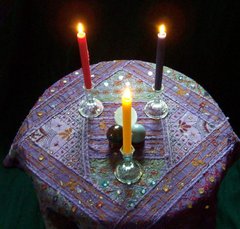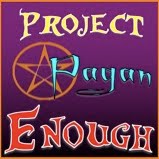Tonight while doing laundry and packing for my trip to Erie, I spent some time listening to Episode 22 of the Inciting A Riot podcast. Fire Lyte is an intelligent, funny, and charming podcaster and I highly recommend you check out both his podcast and his blog. For my own post, however, I want to focus on the segment of Episode 22 where Fire Lyte talks about work and the closet.
Fire Lyte makes the sound observation that different jobs allow for different levels of being open about one’s spirituality and sexuality. I know that as software engineer, I’m in a position of great comfort. An old coworker once summed up the engineers’ situations when he commented that he once overheard a conversation between two managers discussing the engineering department on a previous job. The older manager told his junior, “They’re a weird lot. But they get the job done, so leave them alone.” My own experience has verified the truth of that mentality, that most people in charge of engineers are willing to overlook just about any “personality quirk” as long as the person in question proves themselves an invaluable resource. As such, I can be relatively open about both my sexuality and my spirituality without worrying about my job. Someone who is in a teaching position or — to go back to Fire Lyte’s example — who is working for children in a governmental capacity may not be so lucky. To them, an alternate spirituality or sexuality could be a liability to them.
Fire Lyte’s advice on the matter is to be conscious of this, both when making decisions about how out to be in their current job or in deciding what job opportunities to pursue. This is certainly sound advice from an individual perspective, and I support the idea that an individual’s first concern should be his or her own well-being. Principles don’t matter as much when you can’t afford to buy food.
However, the down-side to that advice is that it does tend to reinforce the status quo rather than challenge it. And as an idealist, this is one area where I certainly would like to see the status quo challenged and eventually broken. To accomplish that, someone somewhere — quite probably a lot of soemones in a lot of different somewheres — are going to have to push their luck and take risks.
Part of the problem, as Fire Lyte noted, is that people have all these strange ideas about Pagans (and gay people), and that if you happen to be the only person that your employer or others know that is Pagan (or gay), then you have an uphill battle to fight, and one that your employer or others in power may not be willing to let you fight.
The problem is, there’s ultimately only one permanent solution to that scenario: Pagans (and gay people) need to become more visible. As long as we stay hidden because it’s easier, then people will remain unconfronted with and uninformed about us. As I said, we only reinforce the status quo.
This doesn’t mean that I think everyone should run out and tell their boss, their neighbors, or anyone else that they are Pagan (or gay). I don’t think everyone should slap a pentacle or pride flag on their desk at work, their car, or their living room window (my landlord made me take mine down due to a lease violation). I may be an idealist, but I’m not a moron. But there are those of us who can take risks — and there are different levels of risk that different people can take — that would go a long way.
There are those of us in jobs where we are secure, either due to the nature of the job or the fact that we are invaluable to our employer. And I’d encourage those who have been at their job for five years or more (yes, such loyal employees still do exist, though they’re rare) to think about how they might have the job security to push the boundaries a little. Because the only way we can gain more visibility and more understanding is to be more visible.
I’ll also note that the advantage of having been at a job for a long time before coming out is that you’re an established person. Rather than being an unknown individual who is a “weird Pagan,” you become a known hard worker who happens to be a “weird Pagan.” And ultimately, I think that’s what we need. We need to be seen as full individuals.
As I said, there are different levels of risk. This most directly translates into different levels of being “out.” “Coming out” at work can be something as simple as telling a couple of trusted coworkers (or even a trusted manager) in confidence. The whole office doesn’t necessarily need to know, and even the increased awareness of one or two people can have positive and radical results in the long term. I’m reminded of the job I had in Ithaca. During the four years I was there, I kept a picture of my boyfriend on my desk. The only two people who commented on it the entire time I was there originally assumed it was a picture of my brother. I politely informed them each that the handsome man was my boyfriend. The one said nothing more, while the other became a better friend. I’m not sure what anyone else in the office made of the picture. For all I know, the others still assumed he was my brother, and I was content to let them assume that.
In the end, each person must make their own choices when it comes to the closet(s) and how “out” they want to be at work, in their community, or in other aspect of their lives. Each person must decide what level of risk he or she is willing to take, and I would not dream of dictating such important choices to others. Bu I would encourage everyone to consider again what level of risk they might be willing to live with if it means a long-term improvement for all Pagans (and/or gay people).













